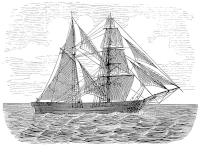Everyone knows or has heard of La Divina Commedia, the Italian poem by Florence-born Dante Alighieri, especially about Inferno, where he punishes both friends and enemies who in his eyes have sinned against God or humanity. However, as is unfortunately often the case, I was one of many Italian students who were (and still are) forced to study Dante’s Comedy in high school but could never see the point of the whole thing. Dante describes a world that I felt far removed from my 21st century life, a Medieval Italy whose internal wars and political anxieties slowly but surely emerge from a text deeply rooted in the philosophical and theological beliefs of the time. Something that no teacher was able to make me appreciate.
Luckily, I have recently been enticed by my newly-born interest in long narrative poems to try to read Dante’s masterpiece again. With a different frame of mind and further training in reading poetry, I am finally able to savour Dante’s poetic genius, and particularly to appreciate the amazingly universal themes he presents in a language that still sounds innovative and alive today.
Not only did Dante strongly believe that the worst kind of sinner, the only one not worth the poet’s and reader’s compassion, is the person who betrays the love or trust of people around them for personal profit, but he also repeatedly expresses outrage towards the religious and political leaders of his time who took advantage of their position to advance their personal agenda (sounds familiar?). In particular, while reading Purgatorio I was struck by the well-known “invective against Italy” in Canto VI, for which Dante extraordinarily stops the narration to express his frustration and anger at the then-current situation of Italian politics.
Clearly, the people at which Dante hurls accusations mean next to nothing in our contemporary political and social context. Dante was writing in an Italy torn apart by civil war, immersed in what the poet perceived as a political vacuum left by the lack of a strong emperor and the inappropriate gathering of both political and religious powers in the hands of one single man (the Pope). However, I found myself deeply moved by the feelings the poet expresses in this passage: he seemed to almost be reading my mind and heart!
The heartfelt “Ahi” with which he begins his invective and the tight series of images (“serva” = abject; “di dolore ostello” = inn of sorrows; “nave sanza nocchiere” = ship without a helmsman) convey a very specific sense of urgency, sorrow, and hopelessness mixed in a way that I could immediately recognize. This is how I feel when I think about the climate crisis: such a pressing, life-or-death matter which inexplicably many people — and definitely all governments — tend to ignore.
Further down (lines 106 onwards), Dante accuses the emperor of not caring about the people and destiny of Italy, masterfully expressing his disgust and despair with a series of “vieni a veder” (come and see). Again, the Italian poet has managed to capture precisely my heart, the mix of anger, sadness, and revulsion I feel when I see images of animals or nature being raped, tortured, and killed by human action.
After reading and re-reading this passage, I realised (I know I’m late at the party) that the object and cause of the feelings might be different, but that the way Dante manages to convey them speaks to us today as it did centuries ago to his contemporaries. I now know what his greatness is, but find it a little disturbing to realize that 700 years later humanity has not improved at all in this respect, and still our actions make us feel this enraged and hopeless as they did in 1300.
